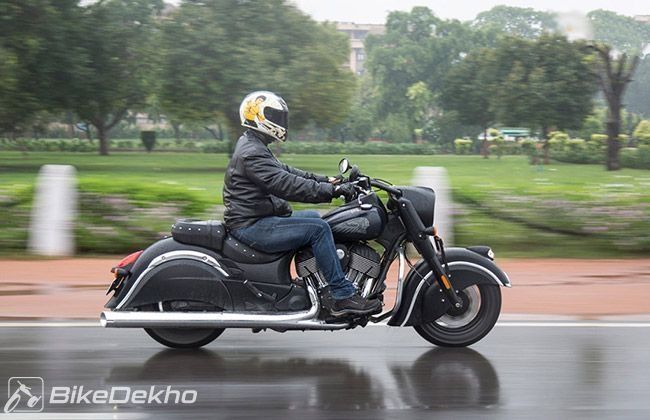Bike Maintenance Tips For Monsoon
Modified On Jan 13, 2025 By Naveen Soni
- 8514 Views

Monsoon brings excitement for bikers as it is a great season for riding. However, your bike requires some extra care during this time of the year. During this season, roads are slippery and one needs to pay extra attention towards smooth functioning of their motorcycle. Apart from having knowledge about correct riding techniques, you should know what to check for before starting a ride. So, here we are with some tips that will help you.
Regularly Scheduled Maintenance

Scheduled maintenance is the most important practice to keep your bike in shape. If you timely service your bike, then not much time is spent on inspection. So, the first thing we would like to recommend is a periodic check-up of your bike before monsoon.
Cover the bike or park it in a shed

Unlike four-wheelers, two-wheelers are automatically exposed to harsh weather. First of all, no one likes to sit on a wet seat. Also, when you are not riding the bike, water gets deposited in various parts. This can lead to long-term issues such as rusting and electric failures. So, it is better to keep your bike covered at all times or park it under a shed. But remember not to park your bike under a tree during the rainy season, as a branch can fall on the bike and possibly damage it.
Get Teflon coating and anti-rust protection layer

Nowadays, most of the bikes come with a fibre bodywork, however, classic motorcycles such as Royal Enfields and some of the scooters still have a metal body. So, it is better to use Teflon coating on the panels as it will prevent them from rusting. Also, every bike comes with a metal main frame that can also be protected by using an anti-rust protection layer to maintain its strength for a longer period of time.
Tyre Check

As the roads are extra slippery during this season, it is very important to keep your tyres in a proper shape. If the rubber has worn out, you should replace it before riding in the rainy season. To test your bike's tyres, you can insert a coin in the groves and check the depth. The minimum depth of the tread should be more than two millimetres to get a decent grip on a wet road. The tyre pressure is also of equal importance in providing better grip. The wet tyre pressure is generally recommended to be a couple of psi below the required one in dry or normal condition.
Clean more frequently

Rainy season means mud and muck, which can be deposited in various parts of your bike. Not all, but some parts such as the chain drive can be affected by the same. Some of the bikes come with a full chain covering while the rest have an open chain cover that leaves the chain exposed to mud and water. Now there are two things that can cause trouble, one is water that washes away the lubricant from the chain and second is deposition of dirt (mud) that increases the rate of wear. So, cleaning and lubing of the drive chain becomes essential after every 500km.
Mud deposition on the engine block also reduces its cooling efficiency. So, it is better to keep your bike clean.
Brakes Check

Last, but the most important check -- the brakes of your bike. The brakes (drum or disk) are affected by rain water and usually loose their efficiency. So, it is advisable to thoroughly check your brakes before going on a ride and also one should try to keep the disc clean in case the bike has a disc brake. The braking style is also similarly important and you should not brake hastily, even if your bike is assisted by ABS (Anti-lock Braking System). It is advisable to ride slow and maintain a good distance from other vehicles. Braking hard on wet roads can result in loss of traction and your bike just might skid.
These are some easy-to-follow tips that will keep you safe. Just follow these checkpoints and enjoy the rainy season.
